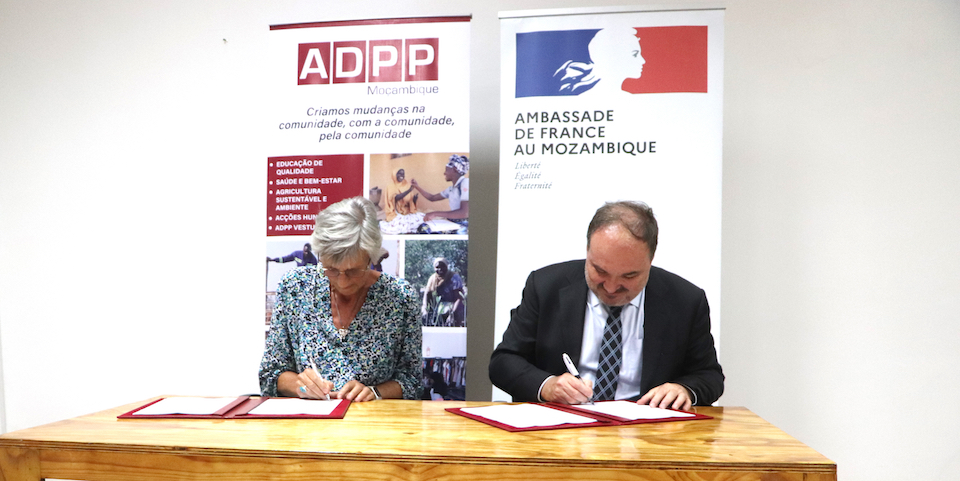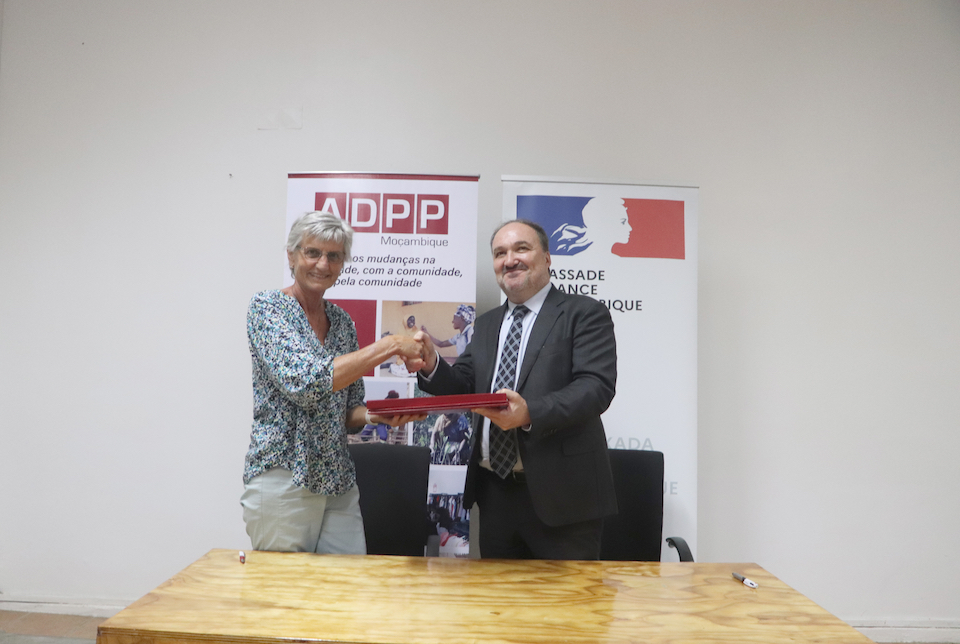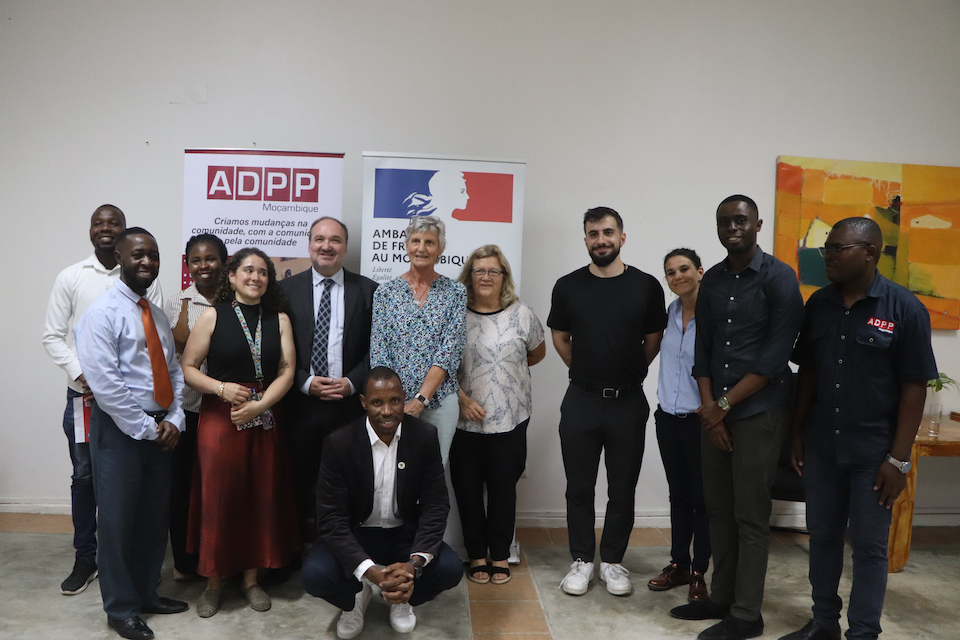The French Embassy in Mozambique and ADPP Mozambique celebrated last Friday (10) in Maputo the signing of a “Cooperation Agreement for Coastal Resilience under the Creation of a New Marine Protected Area” through the Futuro Azul Project. The one-year program, financed by the French Embassy with an amount of 100,000 Euros, aims to establish a response platform to address challenges related to access to water and alternative income sources to fishing in Memba district, Nampula Province. The ultimate goal is to support coastal communities in adapting to life within a Marine Protected Area.

The Futuro Azul Project brings together a consortium of five organizations, including ADPP Mozambique, Eduardo Mondlane University (UEM), the Environmental Association (AMA), the Department of Biological Sciences of UEM (DCB-UEM), ProAzul, and the Biodiversity Conservation Foundation (BIOFUND), led by the Wildlife Conservation Society (WCS). The main objective of the project is to strengthen the resilience of coastal ecosystems while improving the livelihoods of local communities. The interventions cover critical ecosystems such as mangroves, seagrasses, and coral reefs, directly benefiting around 14,786 people through the promotion of sustainable fishing practices and diversification of income sources.
Within this project, ADPP’s role is to work with coastal communities, helping them organize into Livelihood Clubs by creating initiatives that enable them to understand and adapt to living within a Marine Protected Area (MPA).
The grant, signed by Yann Pradeau, Ambassador of France to Mozambique and Eswatini, and Birgit Holm, Executive Director of ADPP Mozambique, aims to support approximately 1,500 people, mostly women, organized into Livelihood Clubs. These include five communities in Memba district, whose members will also receive training in planting and maintaining 10,000 fruit and fodder trees. In parallel, participants will take part in sessions on Gender-Based Violence (GBV), aimed at combating violence against women and promoting their participation in community decision-making.

During the signing ceremony, Ambassador Yann Pradeau emphasized that the agreement represents an important step aligned with the Embassy’s priorities in contributing to the development of northern Mozambique, particularly in terms of biodiversity conservation.
Representing the Futuro Azul Project consortium, Hermenegildo Matimele, Acting Director of WCS’s Marine Program, highlighted that the agreement “adds great value to the project as a whole, as it focuses on the same target population and reinforces community engagement in critical areas, thereby contributing to the sustainable development of marine ecosystems.”
In turn, Birgit Holm, Executive Director of ADPP Mozambique, stated that the partnership is an important step that reinforces ADPP’s commitment to mobilizing additional resources to reach more communities within the Futuro Azul Project.
“We are very pleased with this partnership, as it will allow more families to have access to water within their own communities. This will free women from the time spent fetching water and enable them to engage in other domestic and productive activities that contribute to improving their lives,” she concluded.

France reaffirms its commitment to coastal resilience and climate change adaptation. As an active member of the Paris Agreement and multilateral initiatives of the United Nations and the European Union, the country promotes the protection of marine ecosystems and coastal areas. This initiative continues the strong French mobilization demonstrated during the Nice Summit, dedicated to ocean protection and sustainable maritime governance.
France supports innovative projects and international partnerships aimed at reducing the risks of erosion and rising sea levels by investing in nature-based solutions. Through this coherent approach, the country strengthens its global leadership in coastal resilience and the sustainable management of oceans.

